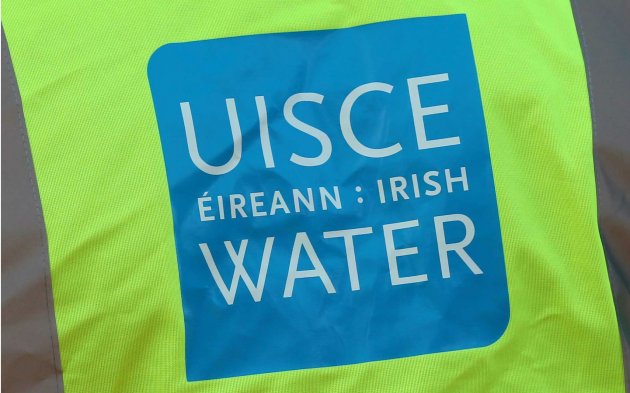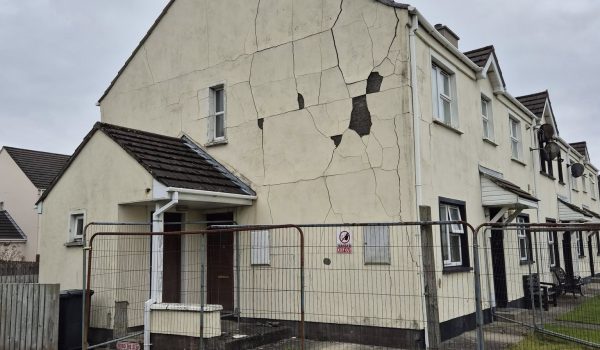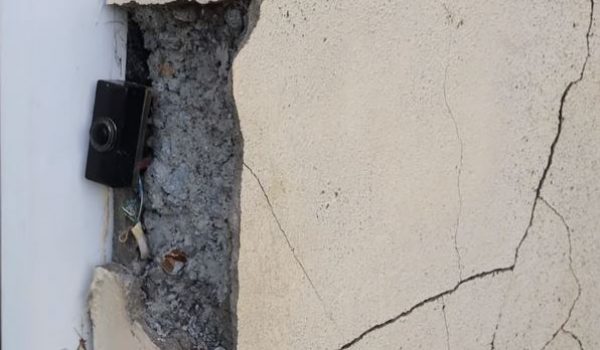
Irish Water has been fined €6,000 for delays in carrying out vitally needed work to improve drinking water and reduce levels of an environmental pollutant linked to cancer.
The company was prosecuted by the Environmental Protection Agency (EPA) for breaking the European Union (Drinking Water) Regulations 2014 requiring remedial action at six water treatment plants providing drinking water to thousands of people in Co Donegal.
The facilities were located at Cashelard, Fintown, Greencastle, Gortahork-Falcarragh, Narin-Portnoo, and Rathmullan.
The court heard drinking water from the treatment plants had been found to have excessive levels of THMs (trihalomethanes), a bi-product of chlorination to disinfect groundwater which makes its way into the supply. They can have possible carcinogenic effects if consumed over long periods, Judge John Brennan was told.
However, there were no health risks caused, the court heard and the HSE had found that any risks were outweighed by the benefits of chlorination.
Irish Water pleaded guilty at Dublin District Court to two sample counts while the four remaining charges were withdrawn. However, Judge Brennan noted that full facts in relation to all the charges would be presented and Irish Water agreed to pay prosecution costs.
Prosecution counsel Sinead Mullan, instructed by solicitor Maeve Larkin, told the court the charges related to failures to implement “regulation 10” directions from the EPA to carry out necessary remedial work to reduce levels of THMs in water.
EPA inspector Derval Devaney told the court the limit for THMs was 100mg per litre but until ten years ago it had been 150mg per litre.
Explaining the reason for the limit reduction, she said it was precautionary resulting from World Health Organisation studies which suggested a possible link between THMs and cancer.
The Cashelard treatment plant had an average THM reading of 200mg per litre and at times it had risen to over 400mg, four and a half times the limit.
Irish Water had been given a direction to upgrade the plant and in January 2015 an upgrade plan had been approved with the EPA which had to be completed within two years.
It involved connecting to a Ballyshannon group water scheme. She agreed with defence counsel Eoghan Cole that the long-term plan was to gain use of a reservoir controlled by the ESB and Irish Water had to wait for a licence to be granted.
However, Devaney said there was nothing to stop Irish Water setting up an interim mobile treatment plant on site at Cashelard until the licence was granted.
The court heard that the Fintown plant had average THM levels of 200mg per litre and the long-term plan was to decommission the facility and have water piped in from another supply. However, the pipeline was just 80% complete by their February 2017 deadline.
Irish Water had been given two years to build a 7-kilometre pipeline and a 1,000 cubic metres reservoir to service the Greencastle plant and reduce THM levels there. The deadline was February 2017 but the work was not expected to be completed until the end of this year.
Gortahork-Falcarragh’s water treatment operation had a 31 October deadline to complete a new plant to bring THM levels in accordance with the regulations. However, it was currently close to completion and was expected to be finished in June.
The Irish Water treatment plant at Narin-Portnoo was expected to be decommissioned and replaced by a 4-kilometre pipeline from another reservoir. The deadline was February 2017 but by then just 500 metres of the pipeline had been completed.
Devaney agreed with Cole that it was finished months later.
The Rathmullan facility was to be replaced in the long-term by being connected to Letterkenny.
However, Irish Water was supposed to, as an interim measure, connect Rathmullan to the Milford supply system which was compliant with THM levels. The deadline was 28 February last year and that was not done until October.
There was a 10-week drought in the area last summer and a mobile treatment plant was put in place in the area, she said.
Devaney agreed that there had been no health risks caused and that Irish Water had been co-operative.
The maximum fine was €5,000 per charge. Cole asked the court to note that by 2021 Irish Water will have spent €100 million on upgrades in Donegal.
Judge Brennan noted the problems had existed before Irish Water had been created and when Donegal County Council was responsible it had begun planning remedial work. He accepted that Irish Water had to review those measures when it took over the operation of the water network.
He also remarked that the public perception of the possible carcinogenic effect was a very serious issue which would give worry to the ordinary consumer.
He accepted that there was no mala fides on behalf of Irish Water and that mobile treatment units which had been used in Rathmullan with success were site-specific and could not have been used at all the other locations.
He accepted there was some delay in implementing actions plans but that they did take action.
- Fri, 13 Feb 2026
- (+353) 07491 25000
- (+353) 086 60 25000





